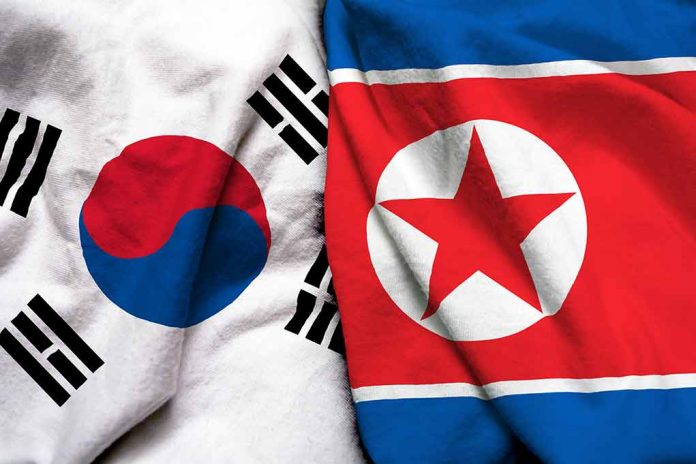
Throughout South Korea’s political crisis, President Yoon Suk-yeol’s attempt to declare martial law has significant implications for diplomacy and regional strategies.
At a Glance
- Yoon attempted martial law, likely damaging long-term international relations.
- Yoon’s foreign policy emphasizes a strong stand against North Korea and closer U.S. ties.
- The impeachment process could see Yoon replaced by Prime Minister Han Duck-soo.
- Political turmoil might jeopardize South Korean, U.S., and Japanese relations.
Martial Law Controversy
President Yoon Suk-yeol attempted to impose martial law, a move that has caused substantial political unrest in South Korea. Critics have labeled the martial law declaration as illegal, urging public protests and challenging Yoon’s authority. Despite the backlash, the country’s strong democratic institutions and international alliances make a coup improbable. Tensions have escalated due to budget disputes and governance issues, attracting global attention and concern.
The public and political spheres in South Korea demand Yoon’s impeachment amidst the turmoil. The process of impeachment is underway, with public support growing for Yoon’s removal. If impeached, Prime Minister Han Duck-soo would take over temporarily, potentially reversing critical agreements with neighboring Japan, such as the General Security of Military Information Agreement (GSOMIA).
South Korea is in turmoil after President Yoon Suk Yeol declared martial law and sealed off parliament to block lawmakers from voting.
n another dramatic moment, a South Korean woman was seen confronting soldiers in front of the National Assembly.#southkorea #seoul pic.twitter.com/L00686dyuA— CGTN Europe (@CGTNEurope) December 4, 2024
Regional Diplomatic Impact
The potential impeachment of President Yoon Suk-yeol introduces significant challenges to South Korea’s international relations. Yoon’s stance aligns closely with the U.S., aiming for stronger defense ties with Japan and a firm position against North Korea. However, this political chaos may encourage a new administration that reconsiders these partnerships.
This turmoil affects the steady U.S.-South Korea-Japan triangle that counters China’s ambitions. The upheaval might benefit China, complicating U.S. efforts in the region. Already, several critical bilateral meetings between Washington and Seoul have been postponed due to the instability. Meanwhile, Lee Jae-myung, a contender for the presidency, advocates for choosing greater autonomy from the U.S.-China contest and criticizing Yoon’s approach to Japan.
Outlook on Governance and Security
On the home front, South Korea faces complex political dynamics as it navigates President Yoon’s potential removal. Martial law has highlighted internal disputes over budget allocations, governance, and alleged corruption issues. While the crisis could aid Yoon in consolidating authority, it riskily intensifies criticism and public dissatisfaction.
“The United States has watched closely developments over the last 24 hours in the Republic of Korea. We welcome President Yoon’s statement that he would rescind the order declaring emergency martial law in accordance with the ROK Constitution, after the National Assembly’s unanimous vote to reject the declaration. We continue to expect political disagreements to be resolved peacefully and in accordance with the rule of law. We reaffirm our support for the people of Korea and the U.S.-ROK alliance based on shared principles of democracy and the rule of law,” said US Secretary of State Antony Blinken.
The political ramifications unfold against critical security agreements, with approximately 28,000 U.S. troops stationed in South Korea. Their presence supports counteracting regional threats, particularly from the North. However, any political shift could complicate these strategic positions, underscoring the importance of stable leadership and coordinated international policies.














